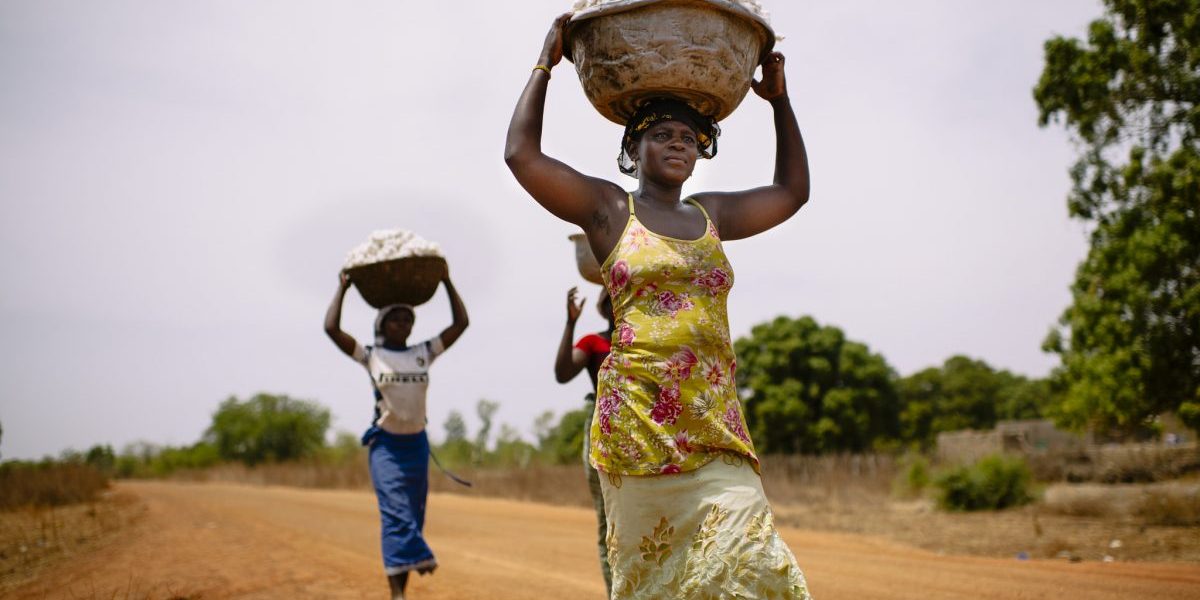The culprit? Soaring government subsidies for cotton farmers in the US. From 1994 to 2001, US cotton supports rose from $99 million to nearly $4 billion, according to official figures. During the same interval, global cotton prices slumped from $2.53 a kilogram to $0.83 a kilogram, causing budget trauma across Western and Central Africa.
Agricultural subsidies remain one of the most divisive issues between the wealthy North and developing South. Europe, Japan, Canada and US spend billions each year propping up products from beef to beetroot – the European Union allocates $3.3 billion annually to sugar exports alone – to compete against the same commodities produced more cheaply in poorer countries.
For years the South has been powerless to balance the terms of trade. But the scales may soon start coming to right. On 18 June 2004, a dispute settlement panel will decide whether to uphold a provisional ruling by the World Trade Organisation (WTO) in April that US cotton subsidies broke global trade rules.
If the ruling is preserved, it will mark the first successful international legal challenge to what the world increasingly regards as unfair Northern agricultural trade practices. Coming just months after the expiration of the WTO ‘peace clause’ – a gentleman’s agreement among nations not to sue over subsidies – it sets the stage for open and sustained confrontation around farm supports that could have important ramifications for African producers.
‘The cotton case is very significant,’ said Hilton Zunckel of the Trade Law Centre for Southern Africa in Stellenbosch, South Africa. ‘It’s the first time a challenge has been brought to the WTO directly against an agricultural product, and it looks like a major subsidising power will lose.’
Brazil’s Challenge to US Cotton Supports
The cotton case, brought by Brazil with third-party support from Benin and Chad, follows a dramatic showdown in Cancun, Mexico, last August, when an emerging coalition of non-Western countries calling itself the G20+ derailed trade talks by protesting against US and European farm supports.
The dispute over subsidies is certain to re-emerge at the annual G-8 meeting in Sea Island on June 8-10, when the leaders of six African states, including South Africa, meet with their counterparts from the world’s most powerful industrialised nations.
Launching its case in September 2002, Brazil claimed that US cotton subsidies in 1999-2000 and subsequent payments permitted under the 2002 US Farm Bill exceeded limits established by the WTO. Consequently, Brazil argued, Washington was no longer protected from litigation under the peace clause.
Washington’s subsidies, Brazil argued, stimulated domestic overproduction that drove down world cotton prices to their lowest level since the Great Depression in real terms and skewed the global cotton market. Brazilian cotton growers claimed they lost $600 million in sales in 2001-02 as a result. The US export market share, meanwhile, doubled from 20% in 1999 to 40% in 2004.
In its defence, the US claimed protection under the peace clause and denied the direct link between its subsidies and plummeting world prices.
Cotton Counts in Africa
The case holds big stakes for Africa, where the livelihoods of 10 million smallholder cotton growers and the prosperity of national economies hang in the balance. Cotton accounts for up to 10% of GDP and a third of export earnings in Burkina Faso, Mali and Chad, according to industry statistics. In Benin, it generates 40% of GDP and 80% of export receipts. The $4 billion in US cotton subsidies in 2001-02 exceeded Burkina Faso’s GDP. They were also three times higher than US aid to Africa, with manifestly counterproductive effects. In 2001, for example, Mali received $37 million in aid, yet lost an estimated $43 million due to lower cotton export revenue.
Brazil and Washington are permitted to send briefs to the panel before it releases its final verdict on 18 June. The US is likely to appeal if the April decision is not substantially altered. But the bigger question relates to enforcement. ‘There are no mechanisms to enforce compliance,’ said Olu Fasan, a trade law expert at the University of London.
Still, trade advocates in Africa remain hopeful that the tide is turning. ‘If the US and EU lose these types of cases, they must accept their punishment,’ Zunckel said. ‘They cannot risk being continually confirmed as perpetrators of suffering in the eyes of the world.’








